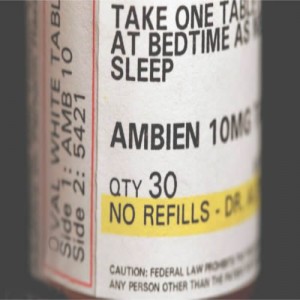Ambien Abuse Rehab At Journey Malibu
Journey Malibu offers a comprehensive Ambien Abuse Rehab program to address both the physical and the mental effects of ambient abuse
Your stay with us will begin, if necessary, with our safe, gentle, staff supervised detox from Ambien, which will get you started on your path to recovery.
What Is Ambien?
 Ambien is the brand name for zolpidem tartrate and is categorized as a non-benzodiazepine hypnotic of the imidazopyridine class. It is primarily prescribed to people who suffer from sleeping disorders, such as insomnia. Studies have confirmed its ability to decrease sleep latency (the time in which it takes for an individual to get to sleep) while increasing the duration of sleep for up to 35 days. Although Ambien is not among the most commonly abused Prescription Medications (Vicodin and Oxycontin are at the top of that list), the potential for abuse and misuse of Ambien is still significant, especially considering several of euphoric and hypnotic side effects it carries with it.
Ambien is the brand name for zolpidem tartrate and is categorized as a non-benzodiazepine hypnotic of the imidazopyridine class. It is primarily prescribed to people who suffer from sleeping disorders, such as insomnia. Studies have confirmed its ability to decrease sleep latency (the time in which it takes for an individual to get to sleep) while increasing the duration of sleep for up to 35 days. Although Ambien is not among the most commonly abused Prescription Medications (Vicodin and Oxycontin are at the top of that list), the potential for abuse and misuse of Ambien is still significant, especially considering several of euphoric and hypnotic side effects it carries with it.
According to the DEA, Ambien is a central nervous system (CNS) depressant, in Schedule IV of the Controlled Substances Act. Other trade names of Ambien include Zolpidem, Ambien CR, Ivedal, Nytamel, Stilnoct, Stilnox, Zoldem, Zolnod, and Zolpihexal. Ambien was introduced in Europe in 1988 and made its way over to the United States five years later. Since its initial appearance in the U.S., Ambien has become the most prescribed sleep medication in the United States.
However, Ambien is intended to be taken only for short periods of time to aid with re-setting the body’s natural circadian rhythms for individuals who have genuine insomnia issues. When Ambien is taken for longer than intended, when it is taken for the wrong reasons (i.e., to achieve the sedating hypnotic and euphoric effects it can produce) or when it is incorrectly administered (taken in a larger dosage than prescribed, crushed and then snorted, or dissolved in water and “cooked” for intravenous injection) then it has lost its therapeutic value and become a potentially dangerous drug of abuse.
Ambien is classified as a “hypnotic” because of its tendency to induce mild to severe hypnosis in those who take it. This hypnosis “high“ makes Ambien particularly attractive to individuals who may have a proclivity to drug abuse, or to those who are seeking relaxation, escape, or freedom from anxiety.
The Necessity For Ambien Abuse Rehab
 One of the more frightening side effects of Ambien is it’s potential to cause blackouts and amnesia. People have reported later remembering (or being told by others) sleepwalking, binge eating, sleep-talking, and engaging in otherwise uncharacteristic behavior. Not only can it be confusing and scary to realize that you don’t remember what you have done for the last several hours, it these blackouts become especially dangerous if the individual engages in risky behavior under the influence of Ambien – driving, operating machinery, or engaging in any other type of potentially hazardous activities.
One of the more frightening side effects of Ambien is it’s potential to cause blackouts and amnesia. People have reported later remembering (or being told by others) sleepwalking, binge eating, sleep-talking, and engaging in otherwise uncharacteristic behavior. Not only can it be confusing and scary to realize that you don’t remember what you have done for the last several hours, it these blackouts become especially dangerous if the individual engages in risky behavior under the influence of Ambien – driving, operating machinery, or engaging in any other type of potentially hazardous activities.
Ambien Abuse – And Risks – Appears To Be On The Rise
According to a recent study, “ED (Emergency Department) visits related to zolpidem (Ambien)—one of the most popular prescribed non-benzodiazepine hypnotics in the United States—also more than doubled during this period, from about 13,000 in 2004 to about 28,000 in 2008.” (Source: http://www.drugabuse.gov/Testimony/9-22-10Testimony.html)
Ambien has the potential to cause a myriad of negative and unpleasant short-term and long-term side effects, which are magnified when used in conjunction with alcohol or any other drug.
Side effects of Ambien may include the more common headache, constipation, and dry mouth; the more serious fast or irregular heartbeat, skin rash, itching, and fever; and severe pertains to psychiatric care (chest pain, difficulty breathing) and psychological (confusion, depression, abnormal behavioral changes) side effects.
People who take too much Ambien may experience an overdose and become excessively drowsy or even slip into a light coma. Sometimes this is the intended effect for users who purposefully take far greater than the intended amount; however, it is very dangerous. The symptoms of overdose are more severe if the person is also taking other central nervous systems (CNS) depressant drugs and can prove fatal.
Dependency And The Need For Ambien Abuse Rehab
Overuse of Ambien can result in dependency, especially when used for longer than a few weeks or at higher than recommended doses. People who have been dependent on alcohol or other drugs in the past generally have a greater chance of requiring ambient abuse rehab. Increased tolerance to the Ambien is another factor causing individuals to boost their Ambien dosage in an attempt to continue to achieve the desired effects of the drug.
Even when used as recommended, Ambien may produce emotional and/or physical dependence, especially in someone with a propensity towards drug abuse and addiction. However, the potential for dependence increases with increased use of the drug. At doses greater than 4 mg per day, Ambien has the potential to cause severe emotional and physical dependence in some patients, which, in turn, may make it exceedingly difficult to stop using this medication. It is important that your physician help you discontinue this medication in a careful and safe manner to avoid a difficult withdrawal. If you find yourself needing to seek outside help, please consider the experienced and compassionate assistance we provide at JOURNEY MALIBU’s Ambien Abuse Rehab.
 Ambien Withdrawal & Treatment At Our Ambien Abuse Rehab
Ambien Withdrawal & Treatment At Our Ambien Abuse Rehab
If you are a long-term Ambien user, it would be wise to check first with your doctor before discontinuing use. At JOURNEY MALIBU, we have a staff of experts in treating drug abuse, and we will help the Ambien abuser recover in a safe and effective manner. Trying to go off the medication “cold turkey” may cause dramatic withdrawal side effects, such as muscle cramps, sweats, shaking, and seizures may occur. Obviously, the severity of withdrawal symptoms experienced is directly related to the amount of Ambien taken and the length of time over which it has been taken. In addition, the difficult nature of attempting to get off of Ambien on one’s own is more likely to lead to relapse on the drug and a subsequent need to go through the process of withdrawal all over again.
Long-term Ambien users should taper down slowly under the care of a knowledgeable physician, or, in a Treatment Facility like the one here at JOURNEY MALIBU’s Ambien Abuse Rehab. Our Drug and Alcohol treatment facility offers detoxification and round the clock supervision for Ambien abuse. An in-patient detoxification and treatment program in a staff supervised setting, such as the one we offer here at JOURNEY MALIBU’s California Drug and Alcohol Rehab, is highly recommended for its multi-disciplinary approach. The specific type of treatment we offer the Ambien abuser here at JOURNEY MALIBU will ultimately be determined by the individual and their needs
If you’re serious about your recovery and are seeking a peaceful, yet comprehensive and rigorous approach to overcoming Ambien and regaining your life, make JOURNEY MALIBU your destination.
For more information about our Ambien Abuse Rehab, please call (888) 717-5643. If we’re not the right match for your needs, we’ll help you find the place that is. All calls are strictly confidential.

